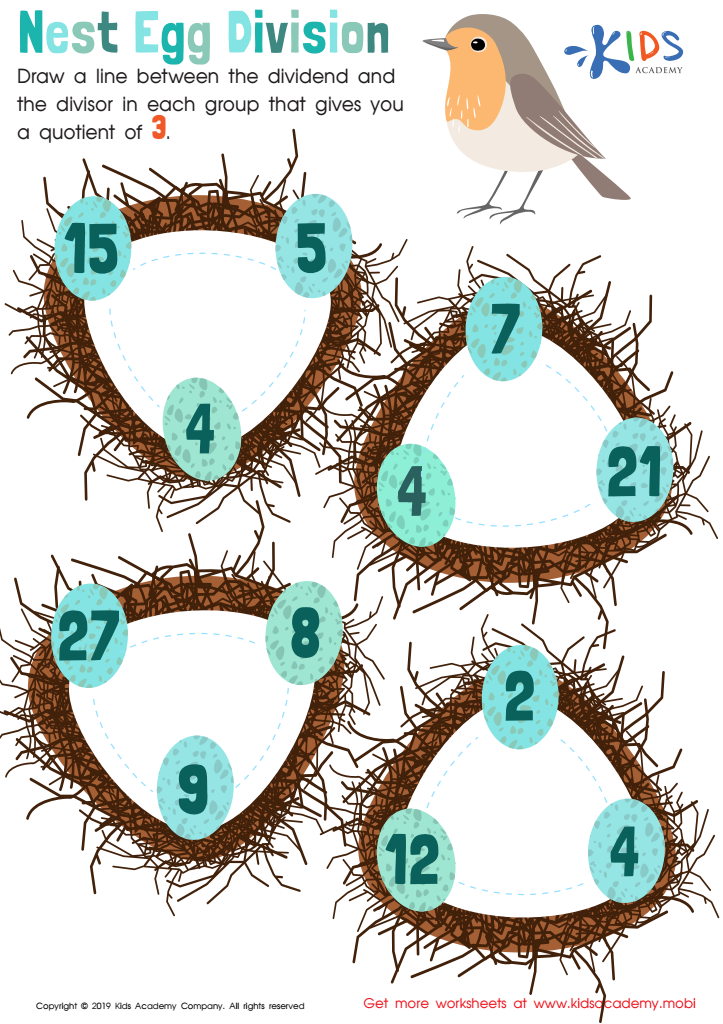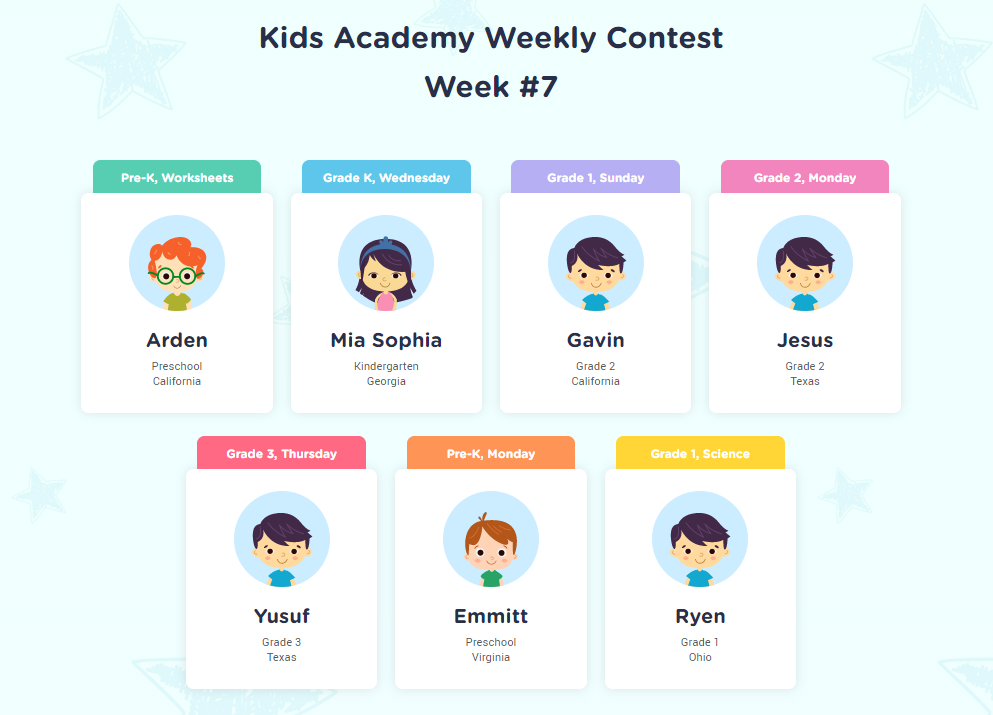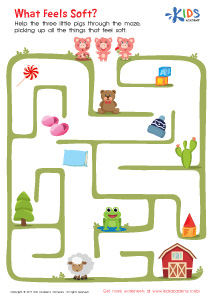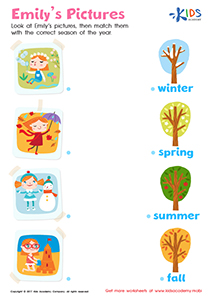Extra Challenge Science Worksheets for Ages 5-8 - Page 2
25 filtered results
-
From - To


Nest Egg Division Worksheet
Parents and teachers should care about Extra Challenge Science for Ages 5-8 because it plays a crucial role in early childhood development and lays the foundation for future academic success. At this age, children's natural curiosity about the world around them is peaked, making it an ideal time to engage them in science. Extra Challenge Science offers hands-on activities and experiments that stimulate critical thinking and creativity, which are essential skills in today’s rapidly changing society.
Moreover, exposing children to science at an early age helps demystify complex concepts and encourages a positive attitude towards learning. This curriculum complements traditional learning by integrating fun and interactive lessons, thus fostering a love for exploration and inquiry. It also supports the development of literacy and numeracy skills through scientific vocabulary and measurement activities.
Additionally, Extra Challenge Science promotes teamwork and communication among peers, helping students learn to articulate their thoughts and ideas effectively. When parents and teachers invest in such programs, they nurture well-rounded individuals who are prepared to tackle future challenges. Ultimately, engaging young learners in science cultivates not just future scientists, but innovative thinkers capable of making impactful contributions to society.

 Assign to My Students
Assign to My Students















